Table Of Contents
Solar panels are a great way to harness the power of the sun and reduce your carbon footprint. Like any technology, they can encounter problems that require fixing. From broken panels to faulty wiring, there are several common issues that can arise with solar panels.
In this article, we will explore these problems and provide you with tips on how to troubleshoot them. We will also discuss when it's time to call a professional for help and how you can prevent future issues with your solar panels.
Let's dive in and learn how to keep your solar panels running smoothly!
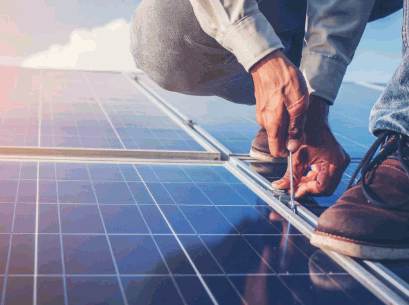
Why Do Solar Panels Need Fixing?
Solar panels are an important component of a renewable energy system, providing environmentally friendly power to homes and businesses. However, like any other technology, solar panels might need fixing due to various factors such as physical damage, weather conditions, or wear and tear over time.
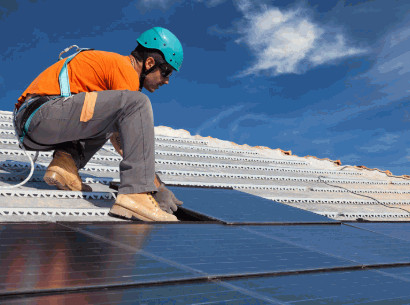
What Are The Common Problems With Solar Panels?
Identifying common problems with solar panels is crucial for maintaining an efficient and long-lasting renewable energy system. Issues can range from physical damage to electrical faults.
Broken Or Damaged Panels
Broken or damaged panels are one of the most visible and obvious issues that can affect the performance of a solar energy system.
Physical damage to solar panels can result from various factors, such as falling debris, harsh weather conditions, or even accidental impact. Falling branches, hailstorms, or strong winds can lead to cracks, chips, or shattered glass on the panels. Storm damage, including heavy rain or snow, can also weaken the structural integrity of the panels over time.
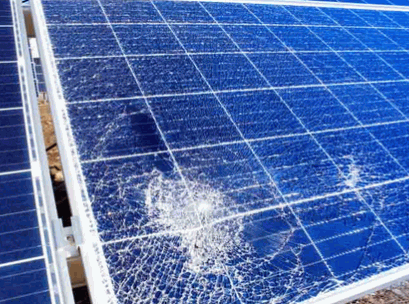
Faulty Wiring Or Connections
Faulty wiring or poor connections can significantly reduce the efficiency of solar panels, affecting the overall energy output.
When your solar panels are not performing to their full potential, it can be frustrating and costly. Some common symptoms of faulty wiring include flickering lights, tripped circuit breakers, or outlets that feel warm to the touch. These issues may indicate loose connections, overloaded circuits, or damaged wires.
An experienced electrician can diagnose and repair these problems promptly to ensure the optimal performance of your solar panel system. Regular checks and maintenance are crucial to prevent potential hazards like electrical fires and ensure that the wiring and connections remain in good condition over time.
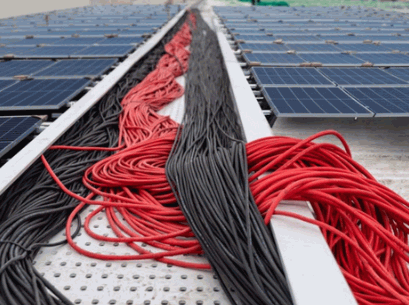
Inverter Issues
Inverter issues can cause significant disruptions in converting the direct current (DC) generated by solar panels into alternating current (AC) for home use.
One common problem related to inverters is a drop in efficiency due to aging components or improper maintenance. This can result in power losses during the conversion process, leading to increased energy consumption and higher electricity bills.
Issues with inverter connectivity or software glitches may cause intermittent power outages or fluctuations, impacting the smooth operation of household appliances. If left unaddressed, these problems can not only reduce the overall performance of the solar energy system but also shorten the lifespan of the inverter itself.
In such cases, it becomes necessary to consider replacing the inverter to ensure optimal energy efficiency and uninterrupted power supply.
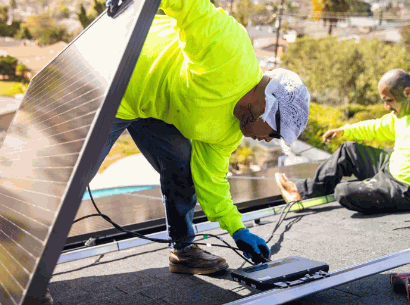
Dirty Or Shaded Panels
Dirty or shaded panels can drastically reduce the energy output of your solar system by blocking sunlight from reaching the photovoltaic cells.
To ensure your solar panels operate at peak efficiency, it is crucial to regularly clean and maintain them. Dust, debris, bird droppings, and other contaminants can accumulate on the surface, hindering the absorption of sunlight.
By scheduling routine cleanings, you can prevent buildup and optimize the performance of your solar array. Be mindful of any trees or structures that may cast shadows on your panels, as shading can significantly diminish their output. Proper placement and periodic trimming of obstructing vegetation can help mitigate this issue.
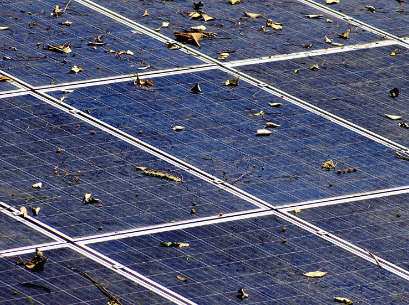
How To Troubleshoot Solar Panel Issues?
Troubleshooting solar panel issues involves a systematic approach to identify, diagnose, and fix problems affecting the performance of your renewable energy system. By regularly inspecting and maintaining your panels, you can ensure optimal energy production.
Check For Physical Damage
The first step in troubleshooting is to check for any physical damage to your solar panels, such as cracks or broken glass.
This can be done through a visual inspection of the panels, looking closely for any signs of wear and tear. Pay special attention to the corners and edges where damage is more likely to occur. If you notice minor cracks or chips, you can consider using repair resin to fill and seal these areas to prevent further deterioration.
For more severe damage, such as extensive cracks or shattered glass, it is crucial to seek professional repair or even replacement to ensure the panels function efficiently and safely. Regular maintenance and timely repairs can help extend the lifespan of your solar panels and maximize their energy production.
Test The Wiring And Connections
Testing the wiring and connections is essential to ensure that there are no loose or damaged wires that could interrupt the flow of electricity from your solar panels.
One tool that is commonly used for this purpose is a multimeter. To start, set the multimeter to the appropriate function, usually the continuity or resistance setting. Then, carefully probe the connections and wiring to check for any irregularities. A proper reading indicates a good connection, while a fluctuating or no reading may indicate a problem.
If any issues are found during the testing process, it is highly advisable to reach out to a qualified electrician immediately. Electrical systems can be complex and dangerous, and professional help ensures the safety and efficiency of your solar panel setup.
Monitor The Inverter
Monitoring the inverter is a crucial step in troubleshooting as it is responsible for converting the DC power generated by your solar panels into usable AC power.
Checking the inverter's display for error codes or performance metrics can provide valuable insights into its functioning. Typically, error codes are displayed numerically or with specific symbols that indicate issues like overheating, grid connection problems, or voltage irregularities.
Understanding these indicators is essential for timely intervention and maintenance. Common inverter issues include sudden shutdowns, reduced power output, or unusual noises during operation. If these problems persist despite basic troubleshooting, it may be time to consider repairing or replacing the inverter to ensure optimal performance of your solar PV system.
Clean And Remove Shade From Panels
Regular cleaning and removing shade from your solar panels can significantly improve their efficiency by ensuring maximum sunlight exposure.
One important tip for safely cleaning solar panels is to use a soft brush or sponge with mild detergent and water. Avoid abrasive cleaners that could scratch the panels. Consider installing shade management strategies like trimming trees or adding reflective surfaces to redirect sunlight onto the panels.
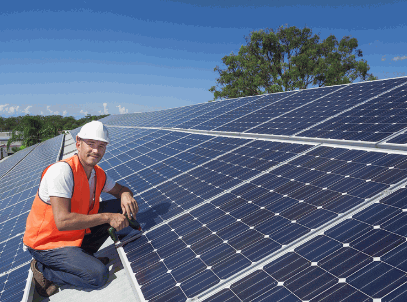
When To Call A Professional?
While some minor issues with solar panels can be resolved through basic troubleshooting, there are instances when calling a professional repair expert is essential to ensure the safety and efficiency of your renewable energy system.
If There Is Physical Damage
If you observe significant physical damage to your solar panels, such as extensive cracks or shattered glass, it's crucial to call a professional repair service immediately.
Attempting to handle damaged solar panels without the necessary expertise can pose serious risks. Not only can you potentially harm yourself, but you may also cause further damage to the panels. Professional repair technicians have the knowledge and tools to safely assess the extent of the damage. They can determine whether the panels need repair or complete replacement.
If You Are Not Comfortable With Electrical Work
If you are not comfortable or experienced with electrical work, it is safer and more efficient to call a professional to handle any wiring or connection issues in your solar panel system.
Attempting DIY electrical work, especially in intricate systems like solar panels, can pose serious risks both in terms of personal safety and the functionality of the system. One crucial aspect of electrical work is ensuring all components are correctly installed and regularly maintained, which requires specialized knowledge and precision. Qualified repair professionals have the expertise to carry out thorough inspections, identify potential hazards, and make necessary adjustments to guarantee the system's optimal performance and longevity.
If The Inverter Needs To Be Replaced
Replacing an inverter is a complex task that should be performed by a professional to ensure that your solar energy system continues to operate efficiently.
There are several signs that indicate when an inverter may need replacement. These include unusual noises coming from the inverter, a decrease in energy production, or warning lights flashing on the display panel. Ignoring these signs could lead to further damage to your solar system and result in decreased energy output.
The inverter plays a crucial role in converting the direct current (DC) electricity generated by solar panels into alternating current (AC) electricity that can be used to power your home. For this reason, it's essential to seek professional expertise when replacing an inverter to ensure proper installation and functionality.
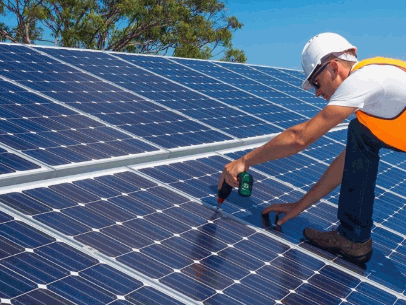
How To Prevent Future Problems With Solar Panels?
Preventing future problems with solar panels involves regular maintenance, proper installation, and proactive measures to avoid potential issues that could affect the efficiency and longevity of your renewable energy system.
Regular Maintenance And Cleaning
Regular maintenance and cleaning are essential to ensure that your solar panels continue to operate at peak efficiency and generate maximum energy.
One of the key aspects of maintaining your solar panels is to regularly check for any debris, dirt, or shading that may be obstructing their optimal performance. It is recommended to perform visual inspections at least once a month to identify any issues. Clearing away leaves, bird droppings, and other debris can significantly improve the panel's efficiency.
Using a soft brush or cloth, gently scrub the surface of the panels with a mild detergent and water solution to remove any dirt or grime.
Ensure that the mounting system and connectors are secure and in good condition. Apply roof sealant around the panel edges to prevent water infiltration, especially after heavy rainfall or snow. Taking these proactive steps can extend the lifespan of your solar panels and protect your investment in the long run.
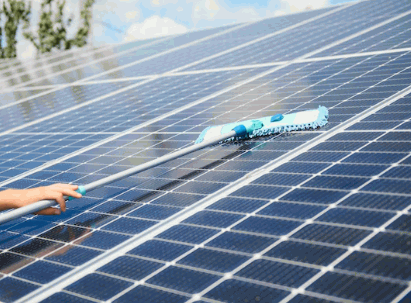
Proper Installation And Wiring
Proper installation and wiring are fundamental to the performance and safety of your solar panel system, ensuring that all components work harmoniously.
By entrusting the installation to a professional, you can be confident that the solar panels will be positioned correctly to receive maximum sunlight exposure, optimizing energy production.
A skilled technician will ensure that the wiring is done meticulously, reducing the risk of short circuits or system malfunctions down the line.
Using a high-quality racking system is also crucial as it provides stability and durability to your solar setup, safeguarding it against harsh weather conditions and ensuring a longer lifespan.
Incorporating an energy meter in the installation allows you to monitor the system's performance accurately, identify any potential issues promptly, and maximize energy efficiency.
Take a look: How To Install Solar Panels On Roof
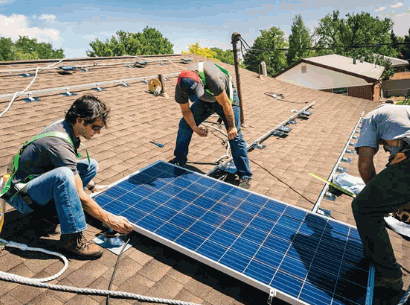
Avoid Shading And Obstacles
Avoiding shading and obstacles is crucial to maintaining the efficiency of your solar panels, as even partial shading can significantly reduce energy output.
Shading can cause what is known as the 'Christmas light effect,' where shaded cells can consume energy rather than produce it, affecting the overall output of the system. To minimize shading impact, consider the strategic placement of panels in areas with minimal obstructions, such as trees or nearby buildings. Regular trimming of overhanging branches or shrubs can ensure that vegetation does not cast shadows on the panels, allowing them to capture maximum sunlight.


